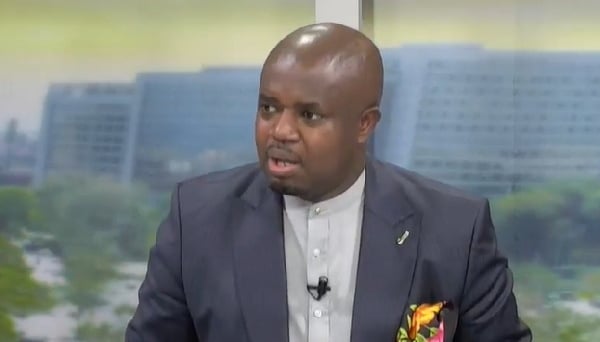Godwin Edudzi Tamakloe, the Director of Legal Affairs for the National Democratic Congress (NDC), has expressed his discontent with a recent Supreme Court decision that stayed the execution of Speaker of Parliament Alban Bagbin’s ruling, which declared four parliamentary seats vacant. During an interview on Channel One TV, Tamakloe labeled the judicial ruling as “extremely strange,” criticizing the court for handling the motion for abridgment of time on an ex-parte basis. He argued that the situation did not sufficiently warrant such an approach and pointed out that the New Patriotic Party (NPP) had voluntarily walked out of Parliament, meaning that the legislative body was still proceeding normally without disruption.
Tamakloe raised concerns about the enforceability of the Supreme Court’s decision. He highlighted a potential scenario in which the Speaker directs the Parliament marshal to bar the four affected Members of Parliament (MPs) from participating in Parliamentary proceedings, suggesting that this could lead to complications in enforcing the court’s ruling. His remarks underscore his skepticism towards the court’s authority in this matter and reflect the broader tensions surrounding the interpretations of parliamentary rules and judicial oversight.
The implications of the Supreme Court’s ruling extend beyond immediate legislative concerns and delve into the heart of Ghana’s democratic processes. Tamakloe described the situation as “extremely dangerous,” warning that the ruling could significantly test the patience of the Ghanaian public. He emphasized that the integrity of the democratic process is at stake and raised alarms over the potential ramifications of such judicial interventions in parliamentary affairs. He cautioned that this could set a precedent affecting future governance and public trust in the democratic system.
The controversy arose from Speaker Bagbin’s initial ruling, which was based on a motion by former Minority Leader Haruna Iddrisu. The ruling referenced constitutional provisions that obligate MPs who aim to run as independent candidates to vacate their seats. The individuals affected by this decision—Cynthia Morrison of Agona West, Kwadjo Asante of Suhum, Andrew Amoako Asiamah of Fomena, and Peter Kwakye Ackah of Amenfi Central—were found to have violated these provisions through either switching political affiliations or expressing their intention to contest the upcoming elections as independents.
Tamakloe’s comments reveal a growing unease regarding the balance of power between the judiciary and Parliament in Ghana. The NDC’s director of legal affairs suggests that the Supreme Court’s decision could have implications that stir unrest among the populace, potentially leading to a questioning of the judiciary’s role in legislative matters. His focus on the rights of MPs and the preservation of parliamentary processes raises essential debates about the limits of judicial power and its role in a democratic society.
In summary, Tamakloe’s critique presents a broader discourse on the integrity of democratic principles amidst rising tensions between parliamentary decisions and judicial interventions. The Supreme Court’s stay of execution is viewed as a risky maneuver that could destabilize not only the current political landscape but also public trust in Ghana’s established institutions. As the situation evolves, the interplay between the judiciary, Parliament, and the public remains a pivotal issue that could have lasting effects on Ghana’s democracy.


